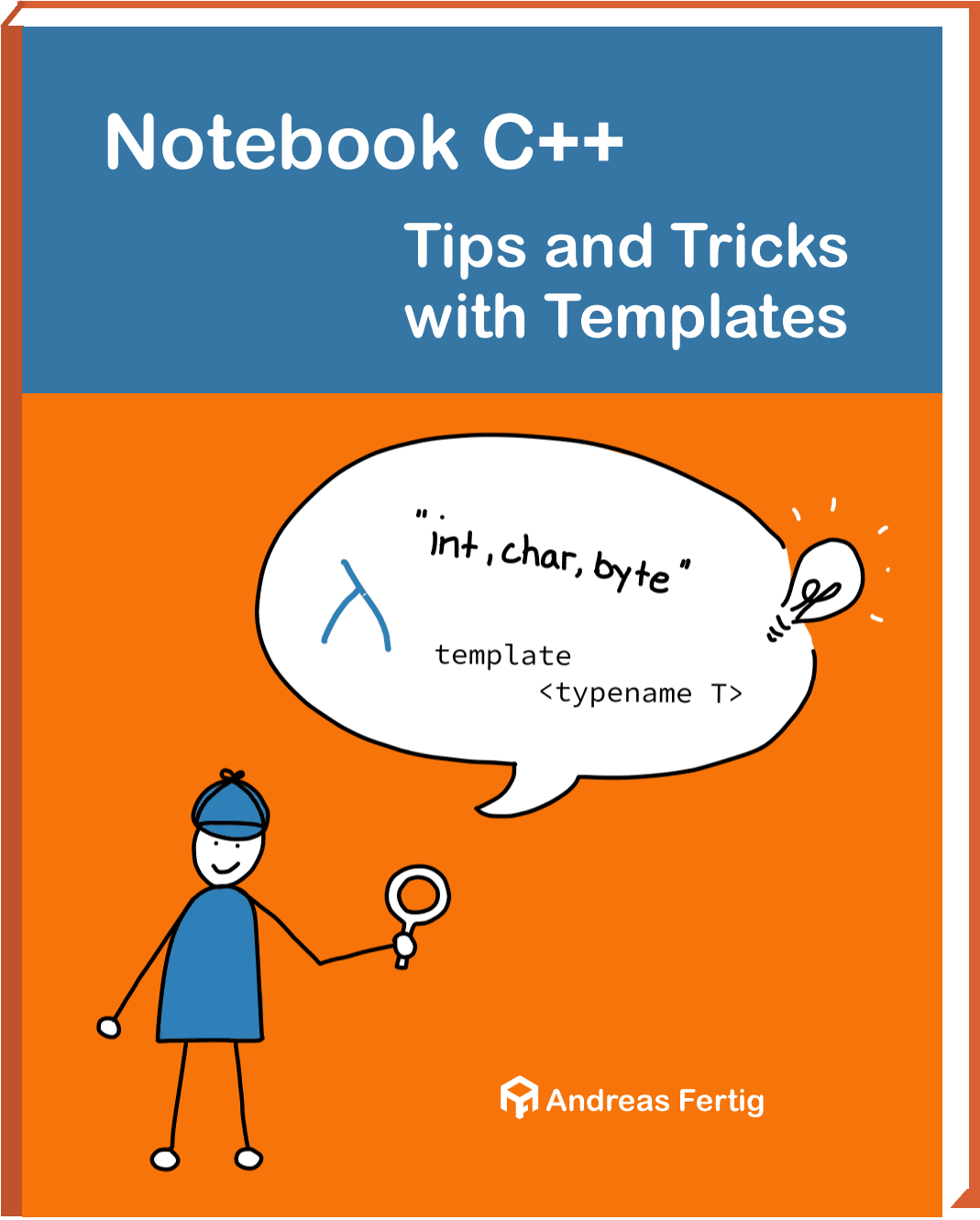
Notebook C++: Tips and Tricks with Templates
Foreword
One of the problems that C++ programmers face using templates is understanding the complex syntax. Mastering Templates can be a game-changer when programming C++, as it is a powerful feature for writing clean code.
In this book from the Notebook C++ series, I show you tips and tricks on how to write templates efficiently. It starts with the basics, like the different template parameter types and techniques like always_false. You’ll then learn more about best practices. For example, where to put the enable_if and how to disable a special member function.
Notebook C++: Tips and Tricks with Templates is a quick-reference book where you can find the information the moment you need it for programming.
Table of Contents
- Notes by Standard at a Glance
- Notes belonging to C++11
- Notes belonging to C++17
- Notes belonging to C++20
- 1 Tips and Tricks with Templates
- Note 1 : Know the name
- Note 2 : Templates can have type and non-type parameters
- Note 3 : When to use
typenameand when to useclass - Note 4 : The elements of a variadic template
- Note 5 : There are no implicit conversions for template parameters
- Note 6 : Alias template for clean TMP
- Note 7 : Variable templates for clean TMP
- Note 8 : Using trailing return type syntax with
decltypeandvoid() - Note 9 : Use
declvalwhen you need to construct a type for testing during compile-time - Note 10 : What
void_tdoes - Note 11 : Keep that array's size
- Note 12 : There is no else if in C++
- Note 13 : More useful than it appears:
always_false - Note 14 : Prefer
autoas an NTTP to reduce redundancy - Note 15 : Block template argument deduction
- Note 16 : Fold expressions and the comma operator
- Note 17 : A Poor Man's Fold Expression
- Note 18 : From an array to a pack
- Note 19 : From an array to a pack with templated lambda
- Note 20 : Create objects in place for direct use
- Note 21 : Guidelines for efficient use of templates
- Note 22 : Put
enable_ifon the return type - Note 23 :
enable_ifand how to disable a member function - Note 24 : How to disable a special member function
- Acronyms
- Bibliography
- Index
Extract
| Table of Contents | [ pdf ] |
|---|
Errata
I'm always interested in issue reports or suggestions for improvements.
I like to thank every reader who pointed errors out.